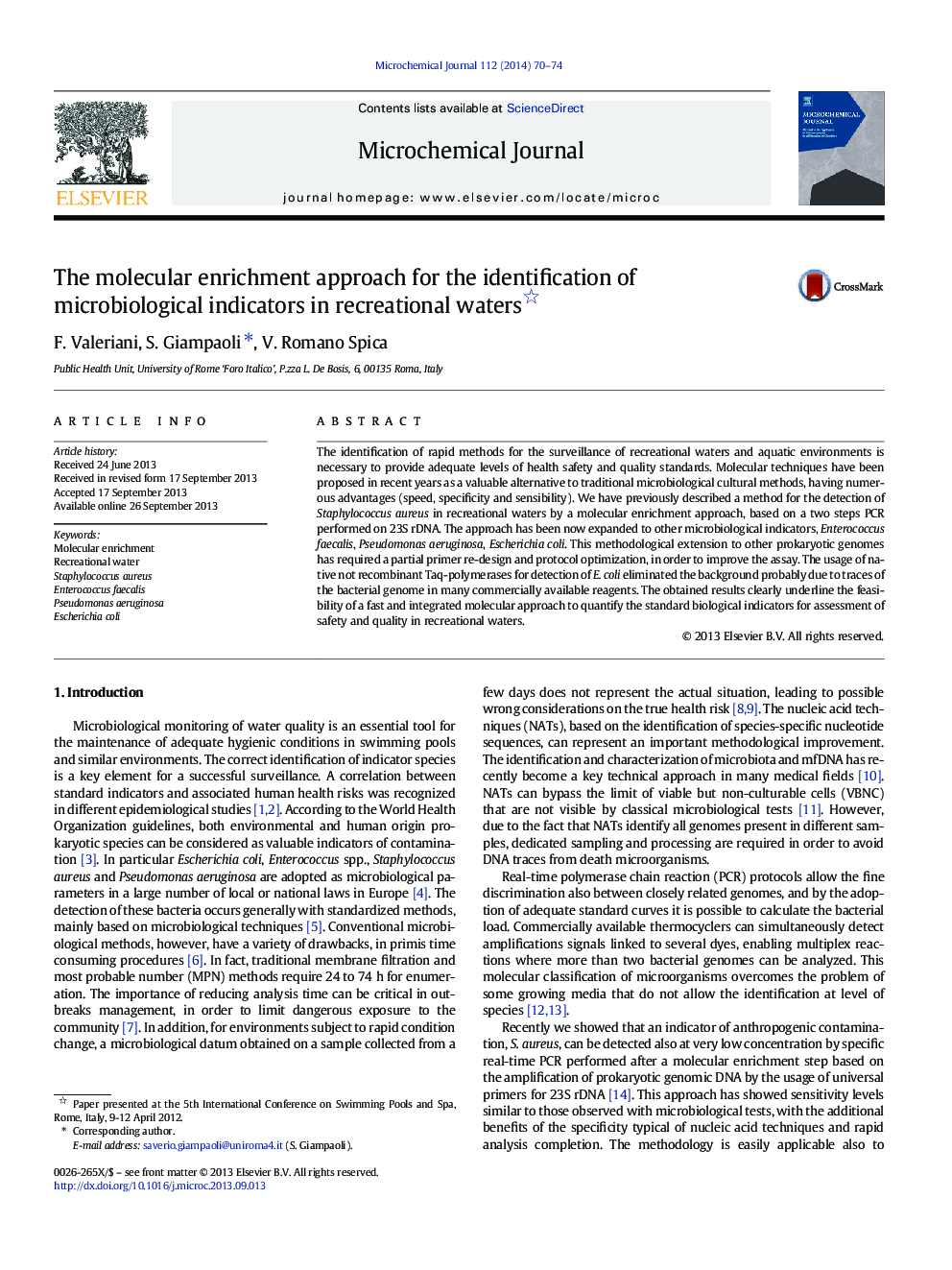| Article ID | Journal | Published Year | Pages | File Type |
|---|---|---|---|---|
| 7643347 | Microchemical Journal | 2014 | 5 Pages |
Abstract
The identification of rapid methods for the surveillance of recreational waters and aquatic environments is necessary to provide adequate levels of health safety and quality standards. Molecular techniques have been proposed in recent years as a valuable alternative to traditional microbiological cultural methods, having numerous advantages (speed, specificity and sensibility). We have previously described a method for the detection of Staphylococcus aureus in recreational waters by a molecular enrichment approach, based on a two steps PCR performed on 23S rDNA. The approach has been now expanded to other microbiological indicators, Enterococcus faecalis, Pseudomonas aeruginosa, Escherichia coli. This methodological extension to other prokaryotic genomes has required a partial primer re-design and protocol optimization, in order to improve the assay. The usage of native not recombinant Taq-polymerases for detection of E. coli eliminated the background probably due to traces of the bacterial genome in many commercially available reagents. The obtained results clearly underline the feasibility of a fast and integrated molecular approach to quantify the standard biological indicators for assessment of safety and quality in recreational waters.
Keywords
Related Topics
Physical Sciences and Engineering
Chemistry
Analytical Chemistry
Authors
F. Valeriani, S. Giampaoli, V. Romano Spica,
